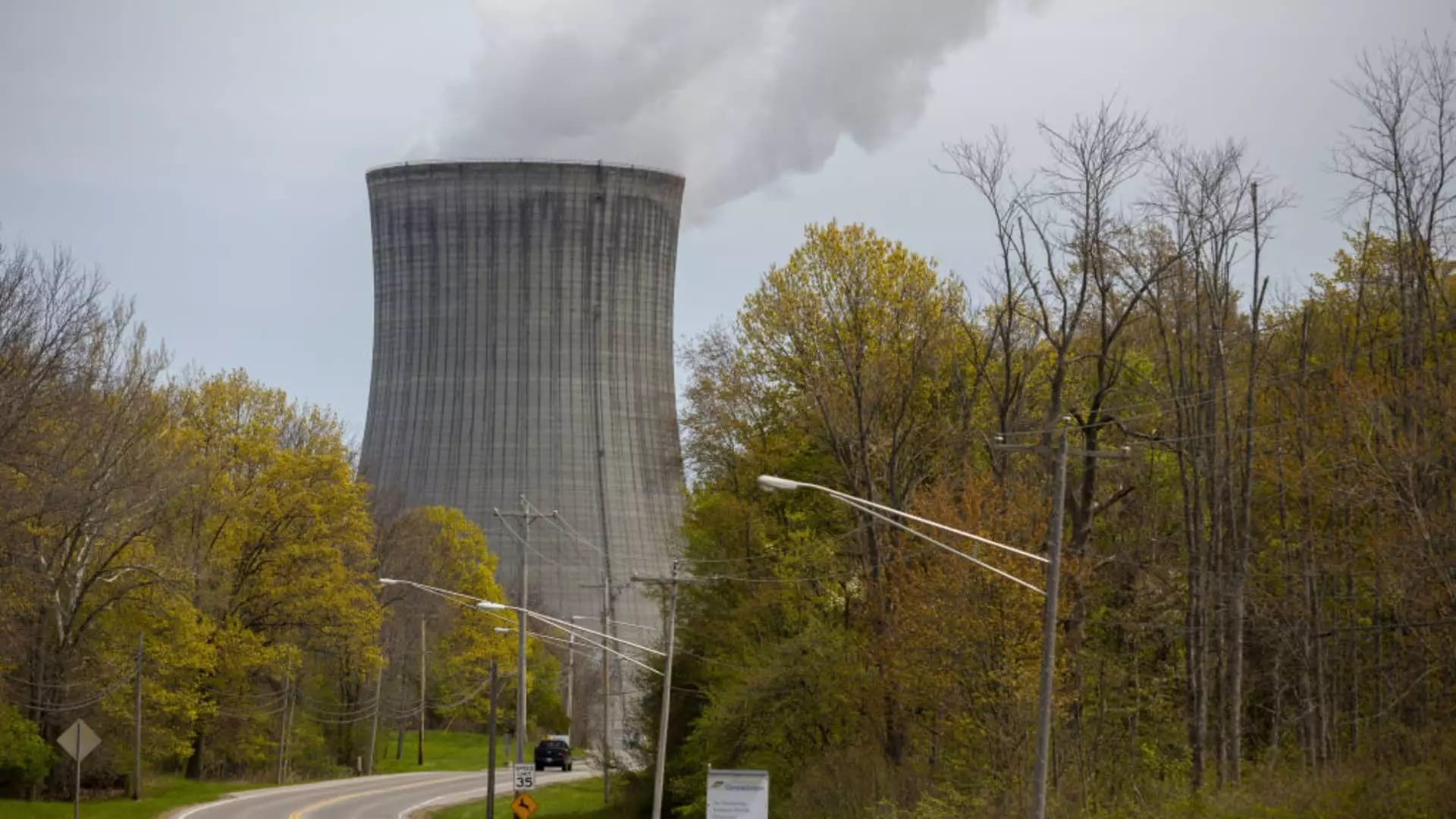As the demand for clean energy to power artificial intelligence continues to rise, tech companies are looking to directly connect data centers to nuclear plants. This move is driven by the need for a reliable power source to support the growth of data centers, which now require a gigawatt or more of power. However, this shift towards nuclear power has sparked resistance from some utilities over concerns about the impact on the electric grid.
Tech companies are rapidly expanding their data center operations while facing constraints in power supply. The retirement of coal plants and the increasing demand from domestic manufacturing and electric vehicles are putting pressure on the grid. The largest grid operator in the U.S., PJM Interconnection, has warned about tightening power supply and demand, especially in regions like northern Virginia, which houses the world’s largest data center hub.
The concept of co-locating data centers next to nuclear plants is met with controversy, as seen in the case of Amazon Web Services and the Susquehanna nuclear plant in Pennsylvania. While this arrangement aims to provide a quick solution to the growing demand for power, utilities like American Electric Power and Exelon have raised concerns about the potential implications for the grid. They argue that such agreements could result in less available power for existing customers and disrupt the transmission system.
The Federal Energy Regulatory Commission (FERC) has received complaints from utilities regarding the direct sale of power from nuclear plants to data centers. The objections raised highlight the need for a balanced approach to meeting the power needs of data centers without compromising the interests of other consumers. FERC’s upcoming conference on this issue will provide an opportunity for stakeholders to discuss and address the challenges associated with connecting large electricity loads directly to power plants.
Amid the opposition and regulatory challenges, data center developers may consider alternative locations for their operations. Texas, with its independent grid called ERCOT, is becoming an attractive option for companies looking to establish data centers. Vistra Corp., owner of nuclear plants in Texas, is actively engaging with customers to explore co-location opportunities. Similarly, Dominion Energy is open to connecting a data center to the Millstone nuclear plant in Connecticut, emphasizing the importance of finding solutions that benefit all stakeholders.
The debate surrounding the connection between data centers and nuclear plants underscores the need to balance the power needs of different consumer groups. Companies like Holtec International are advocating for a more equitable distribution of power to ensure that all consumers benefit from these initiatives. As the U.S. grapples with the challenges of meeting the power demands of data centers, it is essential to consider the long-term implications of these decisions on consumers and the energy grid as a whole.
The growing demand for clean energy to power data centers presents both opportunities and challenges for the energy industry. While the direct connection to nuclear plants offers a promising solution to meet the power needs of data centers, it also raises concerns about grid reliability and equitable power distribution. By addressing these challenges through collaboration between stakeholders and regulatory bodies, the energy industry can navigate the complexities of powering the digital economy while ensuring a sustainable and resilient energy infrastructure.

